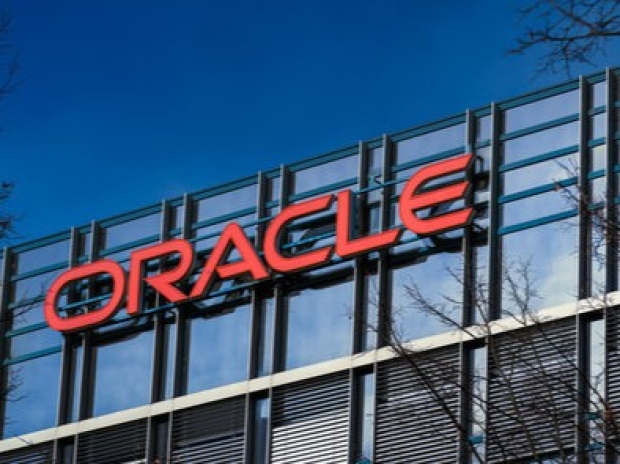The US outfit founded by Larry Ellison hurled itself into the AI arena, pledging to spend hundreds of billions of dollars on chips and data centres to feed deals with OpenAI, which builds ChatGPT.
The speed and sheer scale of this lunge have bothered investors at a moment when everyone is scrutinising hyperscalers and their sprawling server farms with extra scrute.
Oracle shares have slumped almost 30 per cent over the past month, nearly twice the decline of the next-worst hyperscaler, Meta.
Its wipeout has erased more than $ 250 billion in gains notched up when the Texas outfit bragged about its OpenAI deals in September. A Financial Times tracker shows its debt prices have fallen about 6 per cent since mid-September, worse than any of its big-name rivals.
Panic has bubbled up partly because Oracle pivoted late from business software to cloud services. Its new plan is a full-throttle gamble on AI, and it is tied closely to OpenAI’s fate.
Rothschild and Co Redburn head of research Alex Haissl said: “This is a completely different business model to what investors prize in cloud services. The deals look fantastic when you look at the revenue figures, but they are very capital-intensive, so they create very little value.”
Investors fear sky-high valuations and bonkers capital spending could blow up if loss-making AI outfits such as OpenAI and Anthropic fail to turn their hype into something useful.
The Nasdaq slid 2.3 per cent on Thursday as tech stocks took another beating, with Oracle’s shares dropping 4.2 per cent.
The Austin-based outfit claims its OpenAI deals will generate $300 billion in revenue from 2027 to 2032.
Executives insist the rewards will be worth the risks since AI demand is roaring ahead of available compute. Its shares remain about 30 per cent higher this year, which is some comfort for anyone still clinging on.
S&P Visible Alpha reckons Oracle’s infrastructure revenues will soar by more than 10 times by 2029, and most of the cocaine-nosed jobs of Wall Street analysts remain bullish. The trouble is, Oracle has been guzzling debt to build capacity at a breakneck pace.
Its long-term debt has climbed to about $96 billion from $75 billion a year ago, according to Bloomberg. Morgan Stanley expects that to balloon to around 290 billion dollars by 2028. Oracle flogged $18 billion in bonds in September and is reportedly in talks with US banks to raise another $38 billion.
A long-standing short seller told the Financial Times that Ellison “is now way off the reservation in terms of how he’s spending” and added “The market is clearly saying it is no longer interested in companies burning endless cash on AI.”
Barclays analysts cut their rating of Oracle’s debt to underweight from market neutral, warning that eye-watering AI costs have outpaced free cash flow.
Moody’s has highlighted serious risks because Oracle relies heavily on a small set of AI customers. S&P Global warned that by 2028, a third of its revenues will hinge on a single customer: OpenAI.
S&P Global director Andrew Chang said: “That is a huge liability and credit risk for Oracle. Your main customer, biggest customer by far, is a venture capital-funded start-up.”
OpenAI is also being grilled about how it plans to stump up the $1.4 trillion it has promised for AI infrastructure over the next eight years. It has struck deals with several tech giants, including Oracle’s competitors.
Among the five hyperscalers, Oracle is the only one with negative free cash flow. Its debt-to-equity ratio has rocketed to 500 per cent, which dwarfs Amazon’s 50 per cent and Microsoft’s 30 per cent, according to JPMorgan.
While all five outfits have seen their cash-to-asset ratios sink during the spending boom, Oracle’s figure is the worst by far.
JPMorgan noted a “tension between [Oracle’s] aggressive AI build-out ambitions and the limits of its investment-grade balance sheet.”
Analysts have also noted that Oracle’s long-term data centre leases extend well beyond the periods covered by its contracts with OpenAI.
The company has signed at least five long-term leases for US data centres intended for OpenAI use, leaving it with 100 billion dollars in off-balance-sheet commitments. Some of these sites will not even break ground until next year.
Safra Catz, who ran Oracle solo from 2019 until she quit in September, had long resisted expanding its cloud unit because of massive costs. Co-chiefs Clay Magouyrk and Mike Sicilia have replaced her for the new AI-focused era.
Catz, who is now the executive vice chair, has exercised stock options and sold $2.5 billion in shares this year, according to filings. She had already announced plans to exercise those options at the end of 2024.

